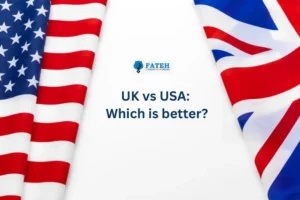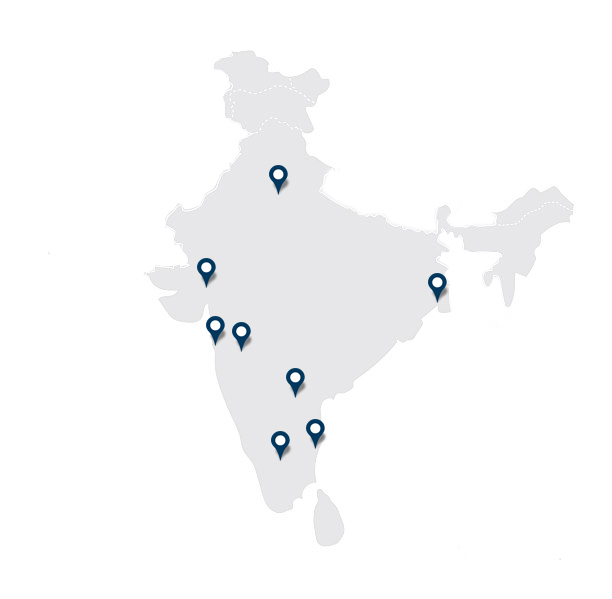




The USP of an SOP: Learn how to build a compelling story that reflects your academic background, career goals, and motivation for pursuing an MBA abroad. We’ll guide you on aligning personal experiences with your professional vision to create a memorable SOP that feels authentic—not robotic.
Tailoring to Top B-Schools: Discover what top B-schools in the UK and Ireland—like London Business School, Trinity, and UCD—really look for in a Statement of Purpose. We break down how to reflect leadership, clarity, and commitment in ways that resonate with admissions panels.
Structure, Style & Strategy: Get access to real SOP excerpts and expert strategies. From tone and structure to common pitfalls, learn the dos and don’ts of writing an SOP that’s both personal and persuasive.

What Is It?: A backlog certificate verifies if a student had academic backlogs and whether they were cleared, while a no-backlog certificate confirms a clean academic record. These documents are often required for university admissions, scholarships, or student visa applications—especially in the UK and Ireland.
What to Include: It must list academic details like course, batch, register number, subjects with backlogs, number of attempts, and year of passing. The certificate should be issued on official letterhead, signed by the dean or principal, and properly stamped to ensure authenticity.
How to Get It: Apply through a formal letter with supporting documents such as mark sheets, student ID, and degree certificate. Ensure digital or physical submissions meet format standards and are verified to avoid delays or rejections.

Purpose & Components of Work Experience Certificates: A Work Experience Certificate (WEC) formally validates employment history including job role, duration and key responsibilities. It must include company details, authorised signatures and accurate employment records.
Types & Formats for Different Scenarios: WECs vary by employment type – standard (full-time roles), internship (trainee positions) and project-based (short-term assignments). Templates should use professional language, highlight achievements and follow institutional requirements for study abroad.
Obtaining & Troubleshooting Certificates: Employees should request WECs during exit formalities via a formal written application. Common challenges like employer refusal or errors can be resolved through HR follow-ups, alternative proofs (payslips) or self-declarations with supporting documents.

Transcript Essentials & Types: Academic transcripts are official records detailing a student’s courses, grades and qualifications, issued on institutional letterhead with authorised stamps. Variants include consolidated marksheets, provisional certificates and semester-wise marksheets.
Application & Processing: To obtain transcripts, students must submit a request form, ID proof and mark sheets to their institution’s registrar, often with a nominal fee. Processing takes days to weeks, with options for postal or digital delivery. Final-year students may use provisional transcripts for early applications.
Global Academic Importance: Transcripts are mandatory for university admissions, scholarships, visas and employment abroad. They validate academic history, backlog status and ensure compliance with international education standards.

Academic Experience & Popular Courses: The UK offers shorter, cost-effective courses with academic prestige and a structured education system, ideal for students seeking clarity and tradition. The USA, on the other hand, appeals to risk-takers with its flexible structure, sprawling campuses and emphasis on innovation.
Cost, Duration & Visa Pathways: The UK is more economical overall with one-year master’s and three-year undergraduate degrees, while the USA offers longer courses at a higher cost. The UK provides clear, student-friendly visa and post-study work pathways through the Graduate Route. The USA offers OPT and STEM extensions.
Climate & Culture: While the UK has a consistent, moody maritime climate, the USA offers diverse weather conditions based on geography. Both countries are rich in cultural exposure, but lifestyle and adaptability vary.

GPA vs CGPA: Core Difference: GPA measures academic performance per semester (typically on a 4.0 scale), while CGPA reflects cumulative performance across all semesters. Conversion between the two is essential for international applications, with formulas like CGPA = (GPA × 10) ÷ 4.
Calculation Methods & Global Variations: GPA is calculated by multiplying grade points by credit hours and dividing the total by credit hours attempted. Countries like the USA use a 4.0 GPA scale, Australia a 7.0 scale and India a 10.0 CGPA system, requiring tailored conversions for university applications.
Impact on Study Abroad & Admissions: Top universities often require a minimum GPA (e.g., 3.0–3.5 for the USA) or equivalent CGPA (e.g., 7.5+ in India). While GPA/CGPA is crucial, scholarships and admissions also consider test scores, SOPs and extracurriculars.

Cultural Immersion & Global Perspective: Living abroad fosters deep cultural understanding through firsthand experiences with traditions, languages and social norms. Students gain adaptability and cross-cultural communication skills—valuable assets in an interconnected world.
Career Advancement & Employability: International education enhances resumes, with employers valuing the independence, problem-solving and global outlook gained abroad. Exposure to global programmes (e.g., FinTech at Dublin Business School) and networking opportunities boosts job prospects.
Personal Growth & Lifelong Skills: Navigating life in a new country builds resilience, self-reliance and confidence. From managing finances to exploring iconic landmarks (like London’s Wembley Stadium), students return with enriched perspectives and unforgettable experiences.

Elite Academic Pedigree: Comprising eight historic institutions including Harvard and Princeton, Ivy League schools represent the pinnacle of US higher education. With acceptance rates between 3.5-7.5%, they maintain stringent standards, requiring minimum 3.8 GPAs, exceptional test scores and outstanding extracurricular profiles from applicants.
Significant Financial Commitment: Annual costs exceed $86,000 including tuition and living expenses. However, need-blind admissions for domestic students and generous aid packages for international candidates ensure accessibility regardless of economic background.
Unparalleled Career Advantages: Beyond academic prestige, these universities offer unmatched networking through influential alumni networks, specialised graduate schools and direct recruitment pipelines to top global employers.

Delhi, Ahmedabad, Bangalore, Chennai, Hyderabad, Kolkata, Mumbai, Pune, Chandigarh